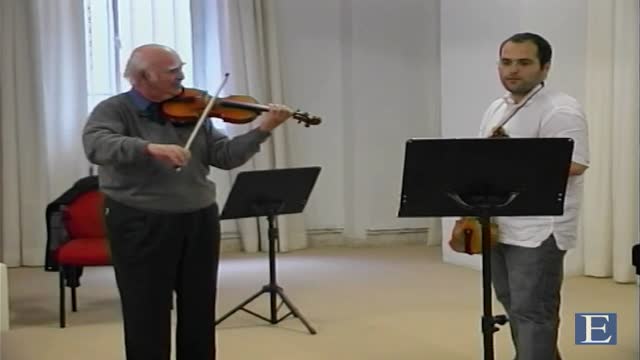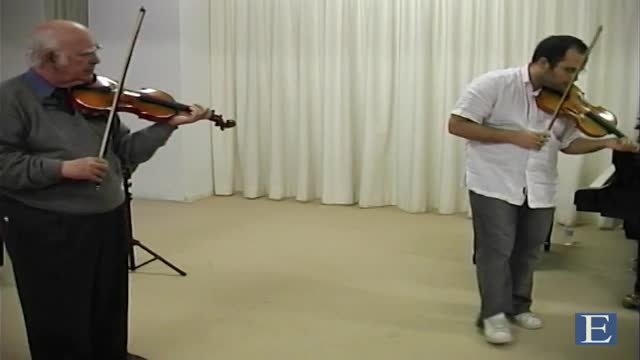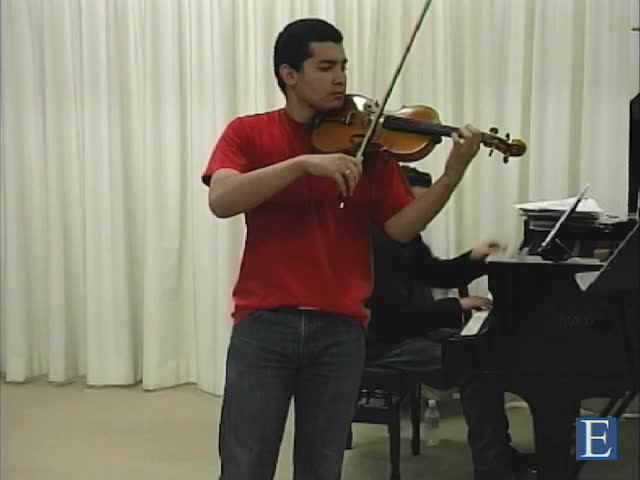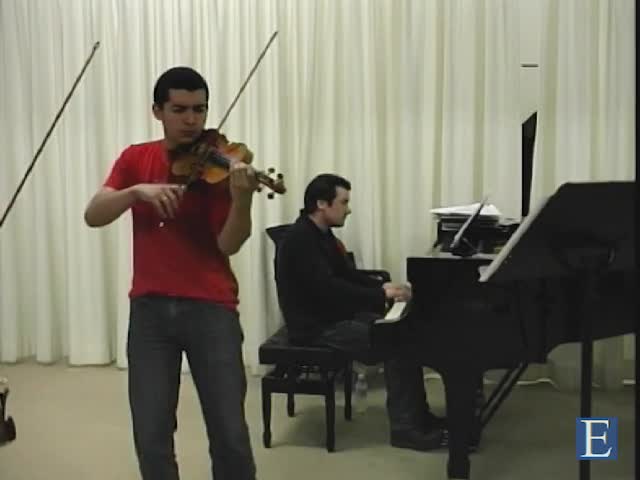Studies with Josef Gingold and Mischa Mischakoff completed the doubtless rigorous technical training Silverstein received from the Auer-trained Efrem Zimbalist, following initial tuition from his father (a schools’ string teacher). His position with the Boston Symphony secured him a reputation as one of the finest concertmasters of his time, especially through televised solo appearances. As a violinist, conductor and teacher he has been a tour de force in American music making for over sixty years. His approach is more analytical than spontaneous and he has been highly praised for his precision, especially in notoriously difficult twentieth-century works. Unfortunately his recordings of the concertos by Stravinsky, Bartók (No. 2), and Schoenberg have not yet been reissued and LP copies are rare.
Silverstein’s discography reveals his intelligent and flexible approach, and his interest in less well-known composers such as Clara Schumann and Amy Beach. In earlier repertoire his broad, resonant Bach Partita No. 3 (2002) shows a perceptive approach to phrasing (in the neatly rhetorical Gavotte en Rondeau, for example), although there are no concessions to period style. Equally fastidious is Silverstein’s c.1984 Mendelssohn Concerto, notable for its tonal clarity and strict adherence to Mendelssohn’s score: there is a cool objectivity with a precise tone, tasteful vibrato in the modern style and few liberties of any sort. His 1985 Barber Concerto evidences greater warmth of tone, an indication that he adapted his playing to the character of music, if not its period. There is still a certain reserve here, and a pleasing spaciousness (particularly in the sensitively-shaped slow movement) that, though lacking the ultimate bitter-sweet toughness of Stern’s famous recording for example, nonetheless demonstrates convincing artistic sophistication.
Against such a backdrop the Sonata by Beach (1977) is surprisingly fiery. A fine interpretation, this sets off with resonant and substantial tone, allowing suitable touches of passion in the third movement and delivering an impetuous finale. As a testimony to Silverstein’s versatility it seems fitting to include here some chamber music: a beautifully-nuanced 1997 performance of Debussy’s Piano Trio No. 1 in which the light salon-music style is given a tidy and sumptuous delivery.
© Naxos Rights International Ltd. — David Milsom (A–Z of String Players, Naxos 8.558081-84)




